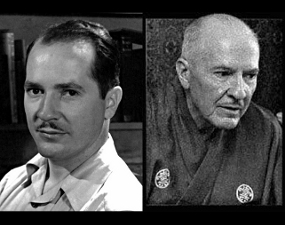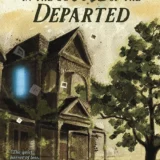Moshe Feder, a long time fan friend and an editor at TOR (not to mention a former asst. Editor at Amazing & Fantastic) is no stranger to Facebook. Recently, an old statement of his (from four years ago!) was resurrected by comments and has been going strong for the past several days. (You can read Moshe’s post and its comments here)
Naturally, I’ve weighed in on several occasions.
Moshe’s initial post was a simple statement of fact: He may be old fashioned, but he prefers “SF” to “Sci Fi”.
Surprisingly, this led to a lot of people saying they preferred Sci Fi over SF, another bunch piled on with preferences for “Speculative Fiction” (call them the Atwood faction); some near hissiness ensued when the subject of gate-keeping came up (apparently insisting that one form be used over the other is an expression of oppression by graybeards of their younger, more vibrant and mentally competent lawn-invaders), but eventually things calmed down long enough for someone to say everyone should just call it what they want to call it and just be happy that we all have an it we can call something.
On a serlous note: I honestly don’t think of it as gatekeeping when a new fan is told about the history of fandom, what it is and how the community generally operates: it’s not “gatekeeping” when your host for the evening informs you that your shoes are to be left in the space provided in the entrance hall. It’s not gatekeeping when you are informed that the little fork on the outside left is for your salad at a formal dinner.
In fact, it’s the opposite. These are examples of the passing on of the mores of an established culture to someone unfamiliar with them.
It used to be that we were all polite enough to observe and query “what the rules are” before jumping in and making hairy faux pas of ourselves.
But these days, the way an individual chooses to comport themselves seems to trump everything else.
For the record, I’m old fashioned. Go ahead and call me that, I don’t mind. I prefer “science fiction” or “ess eff (SF)”. “Sci Fi” was a term of opproprium, of dismissal when I was growing up in the genre. It was only used by the “clueless” (which included, in large measure, the mainstream media).
Space Opera, likewise. We had no need for all of these sub-genres: if it said “Science Fiction” somewhere on the cover, that was good enough for us.
Being old fashioned, however, does not necessarily equate with either gatekeeping or cluelessness. I’m well aware that my lawn has become an unofficial easement, across which all manner of beings will walk. They have fun trampling my grass, I have fun shaking my stick at them (my doctor says exercise is a good thing), no one has erected fences, no one is throwing bricks.
I assure you, there is no black list comprised of authors and artists who once committed the heinous crime of imitating horny insects. If you insist on sounding like a love struck cricket, there’s not much I can do about it.
On the other hand, if you respect the fact that there are more ways than one to refer to this genre and the fact that others may not use your preferred term, then I’m willing to respect the fact that sometimes, out of the blue and usually during a literary discussion, you’ll break out into stridulations that may attract various members of the Gryllidae family.
Besides, my understanding is, a healthy lawn needs some crickets in order to remain healthy.
***
Terms previously used to reference out genre
Before there was science fiction, stories that featured things scientific were often referred to as “Scientific Romances”..
Gernsback used the phrase “Scientific Fiction” in some of his earliest presentations. He then portmanteaued those two words into the execrable and unpronounceable “Scientifiction” (StF in abbreviated form.)
By the time he was publishing Wonder Stories, he was persuaded to change that to “Science Fiction”.
Sometime in the 50s, Forrest J. Ackerman coined “Sci Fi”, which fandom roundly rejected (Ellison referring to it as the “sound of crickets fucking”); it was adopted by mainstream media as their go-to phrase and adopted by fandom as a way to identify the clueless, the fanless and sub-par works.
About the same time, Heinlein and others tried to attain a loftier, more academic more respectable name and suggested “Speculative Fiction”; more recently, some Sci Fi authors have tried to suggest that “speculative fiction” is different from “science fiction” in some self-serving, nonsensical way.
Finally, once it was clear that the mainstream was going to insist on using “sci fi”, fandom introduced “skiffy”, a deliberate mispronunciation of the abbreviation, indicating its feeling on the subject.
Steve Davidson is the publisher of Amazing Stories.
Steve has been a passionate fan of science fiction since the mid-60s, before he even knew what it was called.










Recent Comments